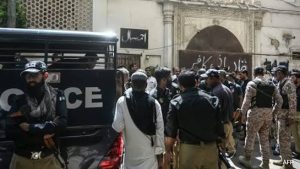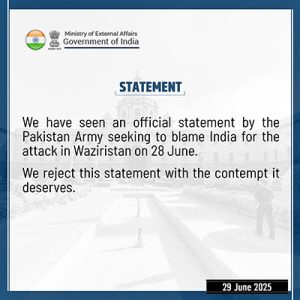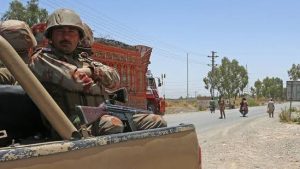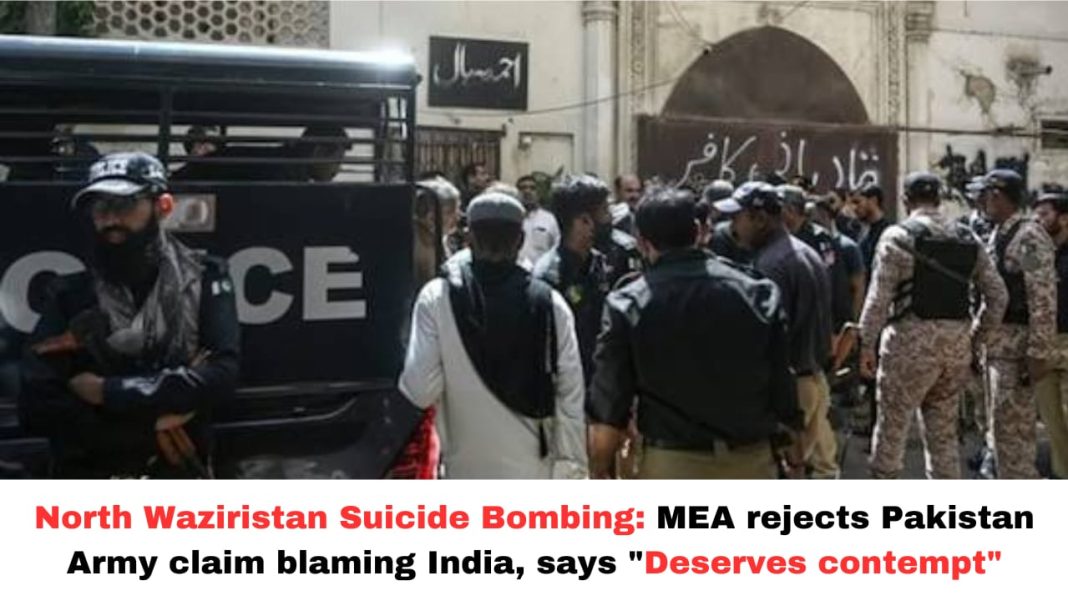Digital News Guru Intertnationa Desk:
Shattered Calm in North Waziristan
On 28 June, tragedy struck North Waziristan, Pakistan, when a suicide car bomber rammed into a Pakistani military convoy in the Mir Ali area. The attack, which defied a longstanding curfew, claimed the lives of 13 soldiers and injured at least 29 others, including civilians and children. Initial reports differed slightly, with the Pakistan military citing 13 fatalities and other intelligence sources reporting up to 14 deaths and 25 injuries..
Intensity of the Blast
Dubbed one of the largest explosions in recent months. The blast not only devastated the convoy but also caused significant structural damage, bringing down roofs on nearby homes and injuring several children who were inside at the time .

Claim of Responsibility
Contrary to initial military claims, a faction of the Pakistani Taliban—the Hafiz Gul Bahadur group—asserted responsibility for the bombing, identifying itself as a powerful and increasingly active militant organization in the region.
Patterns: A Recurring Diplomatic Tug of War
This wasn’t an isolated incident. Tensions between the two nations continue to cascade from one militant attack to another:
- Khuzdar school‑bus bombing (May 21, 2025): Pakistani authorities accused India-based proxies after several children died. The MEA rebutted these claims as “diversionary” and “baseless”.
- Waziristan drone strike (May 19, 2025): After four children were killed in Hurmuz village, the ISPR blamed Indian‑controlled militants. India denied involvement, stating Pakistan lacked proof and accusing it of spreading misinformation.
These repeated blame-and-deny patterns intensify bilateral hostility, making diplomatic resolution elusive and reinforcing a cycle of accusation over tangible evidence.
India’s Official Response
India’s Ministry of External Affairs (MEA) firmly rejected these accusations. In a statement, the MEA spokesperson said:
“Deserves contempt”: MEA rejects Pakistan Army’s claim over attack in Waziristan
MEA said, “We have seen an official statement by the Pakistan Army seeking to blame India for the attack in Waziristan on 28 June. We reject this statement with the contempt it deserves.’’

Ground Realities vs Political Narratives
The Security Vacuum
North Waziristan has long been a militant stronghold, plagued by factions like the Tehrik‑i‑Taliban Pakistan (TTP) and Hafiz Gul Bahadur. The region experiences recurring insurgency and border skirmishes, not all of which can be clearly traced to external state sponsorship.
Diplomatic Risks
Accusations of cross‑border involvement are serious — they carry the potential to trigger escalatory military responses, raise alarm in regional strategic circles, and stall any confidence-building throughout South Asia.
Evidence & International Norms
Pakistan has not published transparent or forensic proof tying individuals or equipment inside Pakistan to Indian support. In contrast, independent analysts and international monitoring groups highlight the lack of verifiable evidence required under international law before level‑headed attribution can be made .
What Lies Ahead?
- Diplomatic Detente or Deeper Divide?
With each side entrenching positions—Pakistan blaming India, India rebutting—prospects for improved relations appear dim. Broader dialogue will likely remain stalled, with regional and global stakeholders expressing concern over stability.
- Heightened Border Security
Pakistan is expected to bolster its military posture in North Waziristan and along the Afghan border, while India will monitor for any signs of militant regrouping or cross-border escalation.

- Call for Objective Investigations
Independent investigations—possibly under UN or other neutral oversight—into such incidents are crucial. Without transparent inquiry, both public and diplomatic mistrust will continue to deepen.
In Summary
On 28 June, a devastating bomb in North Waziristan killed 13 Pakistani soldiers in a suicide attack. Pakistan’s military quickly blamed India and alleged proxy involvement. India, through the MEA, strongly denied these charges.
This incident follows a persistent pattern of accusation-denial cycles following regional terror attacks. With mounting diplomatic friction, the path to factual clarity and regional de‑escalation remains fraught.
You May Also Read: R Praggnanandhaa Overtakes Gukesh to Become India’s No. 1 Chess Player








